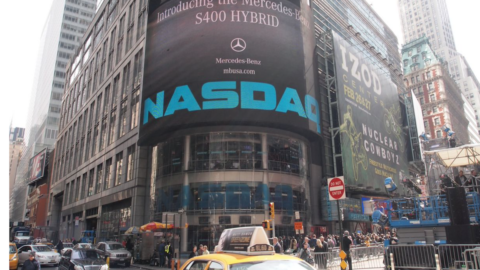Il Quantitative easing non andrà oltre il 2018. Lo ha comunicato oggi la Bce, annunciando che il Qe finirà a dicembre e che da ottobre gli acquisti di bond saranno ridotti a 15 miliardi di euro al mese. Proseguirà pertanto ad un ritmo di 30 miliardi di euro al mese fino a fine settembre 2018. Lo strumento avviato dalla Banca centrale europea nel marzo 2015 per contrastare i timori di deflazione e per accelerare l’uscita dalla grande crisi nell’Eurozona volge dunque al termine, come da previsioni anche se si pensava che potesse proseguire anche nei primi mesi del 2019. La fine dell’acquisto di titoli di Stato e la politica espansiva lasceranno inevitabilmente spazio, progressivamente, al rialzo dei tassi d’interesse. Ma non per ora: la riunione, che si tiene a Riga in Lettonia e non nella solita sede di Francoforte, ha anche confermato che i tassi d’interessi rimangono per ora fermi, come previsto. “I tassi di interesse rimarranno ai livelli attuali almeno fino all’estate 2019, e in ogni caso fin quando sarà necessario per assicurarsi che l’evoluzione dell’inflazione rimanga allineata alle attuali aspettative di un cammino sostenuto”, ha spiegato Draghi.
L’operazione di rialzo dei tassi è invece già stata intrapresa da diversi mesi dalla Federal Reserve, che proprio ieri ha ulteriormente alzato di un quarto di punto percentuale il tasso di riferimento, al 2%. Dopo la notizia diffusa dalla Bce, la Borsa di Milano ha girato in positivo: la mattinata era stata molto cauta in attesa della decisione dell’istituto centrale, poi la svolta intorno alle 14, poco prima dell’intervento di Mario Draghi: a trascinare il Ftse Mib alcuni titoli bancari ma anche Ferrari e Fca, mentre restano in rosso gli energetici, con Italgas fanalino di coda dopo la pubblicazione del piano ieri. Quando Draghi ha iniziato a parlare, alle 14,30, Piazza Affari ha proseguito la sua risalita, assestandosi saldamente sopra i 22.000 punti. Sono però rimaste in difficoltà le banche (ad eccezione di Bper, che risulta anzi tra i titoli migliori) e il Ftse Mib è rimasto agganciato ad alcuni titoli industriali come Prysmian, Fca e Ferrari. In rialzo anche gli altri listini europei, in calo l’euro che dopo una breve fiammata a 1,1852 ha perso oltre una figura in pochissimi minuti arrivando a 1,17189. “Discutere in merito all’esistenza di qualcosa che è irreversibile crea solo danni ed è inutile. L’euro è irreversibile perché piace alla gente“, ha aggiunto Draghi a proposito della moneta unica, mandando poi un ulteriore messaggio neanche troppo criptato al nuovo governo: “Voglio sottolineare come a maggio gli acquisti di bond italiani siano stati pari a 3,6 miliardi di euro, superiori ai 3,4 miliardi di marzo e di gennaio. Dunque non c’è nessun complotto”.
La politica monetaria comunque, ha tenuto a sottolineare Draghi, “non è finita. Gli stimoli monetari sono ancora necessari al sostentamento dei prezzi e dell’inflazione. Il supporto continuerà ad essere sostenuto dal QE fino alla fine dell’anno, dalle attività di reinvestimento e dai tassi di interesse”. Il presidente della Bce, il cui mandato scadrà proprio alla fine del 2019, ha poi commentato il contesto economico: “Fattori temporanei, shock dal lato dell’offerta, dispute commerciali e molto altro ancora sono tutti elementi che hanno pesato sulla crescita che comunque continua a mantenersi solida. L’incertezza relativa a fattori globali come il protezionismo crescente è diventata più evidente: il rischio di un aumento della volatilità necessita monitoraggio”, ha ammonito Draghi, che ha anche annunciato che il l’outlook dell’economia dell’Eurozona è stato rivisto al ribasso per il 2018, ma “è rimasto invariato per gli altri due anni successivi. +2,1% nel 2018, +1,9% nel 2019 e +1,7% in 2020”. Al rialzo invece le previsioni sull’inflazione: “L’outlook è stato rivisto al rialzo soprattutto a causa del prezzo del petrolio, e con riferimento particolare al 2018 e al 2019. La crescita sarà dell’1,7% nel 2018, nel 2019 e nel 2020″, ha sostenuto il numero uno dell’Eurotower.
(Articolo aggiornato alle 16.15)





